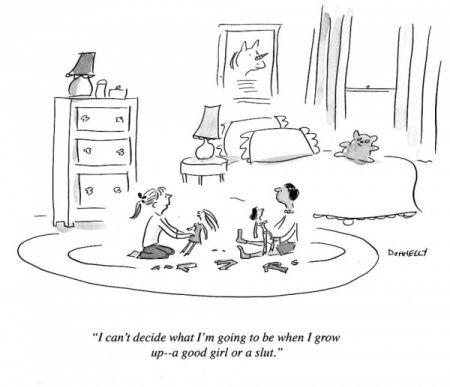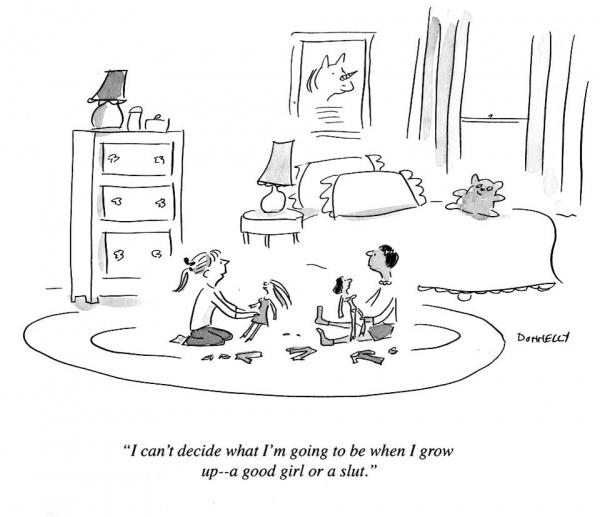Hew Li-Sha asks us to challenge our perceptions on virginity and what it means.
There is a cultural mandate that in order to be worthwhile, you need to be having sex. But there’s another societal rule which implies that you should only be having sex at a certain age with a certain person of a certain gender after a certain ceremony. This piece intends to show that the term ‘virginity’ is a term we must stop using because it detrimentally affects women, as well as limits the way we engage in the conversation about sexual intercourse.
There are many complications when trying to define that exact moment you are no longer a virgin. When does it really happen? When you get a blowjob? Give one? Give 10? When someone fingers you? Oral sex? Anal sex? Orgasm? What if your first time was with a girl? Would you stay a virgin forever? When do you cross the threshold from virgin to non? At what point is virginity, like your keys or your glasses, lost?
The concept of virginity bolsters a highly heteronormative hierarchy of what is and isn’t defined as sex. You’re technically a virgin if you’ve only had anal sex. It doesn’t count. Fingering too, that doesn’t count. I see. Let’s be all heterosexist about sex now, shall we? Let’s bow down before patriarchy and accept that sex can only occur when a penis penetrates a vagina. Even the way we see sexual intercourse is male-defined! Why don’t we see it as the vagina consuming the penis? It’s somehow always difficult to define sex without including the phallus. In fact, when you have two men or two women doing something, it doesn’t fit into the heteronormative conception of virginity. What we understand about this concept of virginity, in a sense, invalidates queer sex. Additionally, when we make the issue of virginity central to our ideas about sexuality and indeed, to being a human being, it completely marginalises those who don’t actually see sex as that overwhelmingly huge factor of their lives.
I remember a conversation I had with my friends. We were all lazing around in the living room, awkward and rebellious teenagers joking about sex, when someone went:
“It must be really difficult for you girls, because you lose more when you have sex for the first time.”
“What the hell do we lose?” my friend and I retorted.
He paused. “I’m not sure.”
Society has embedded within our minds that when a woman loses her virginity, she loses something – her worth, value and hymen. Historically, and in modern times, female virginity has been regarded as more significant than male virginity. Teenage boys ‘get laid’, ‘get lucky’ when he ‘takes her virginity’ but teenage girls ‘lose it’. It becomes a subtle societal obsession: ‘When did you lose your virginity?’ ‘Who did you lose it to?’ ‘Are you saving yourself?’ ‘Did you know it was right?’ There is no word for the first time you kiss someone, the first time you bungee-jump, or the first time you step into a different country. But the first time you engage in heterosexual sex (consensual or not), you’ve lost your virginity. We call it a ‘gift’, and cherish cherry-popping stories, keeping them sweet and sentimental like old photographs in shoeboxes. All of this isn’t such a surprise of course when we remember that for centuries, women have been seen as property and not individual human beings. The concept of virginity reinforces this idea, that a woman’s worth is intrinsically linked to her sexuality.

Violations of girls’ and women’s sexual and reproductive rights and health occur every day in the name of protecting girls’ virginity or controlling the circumstances under which they lose their virginity. For example, forced child marriage, female circumcision and the deliberate withholding of information on reproductive and sexual health. The very concept of ‘virginity’ also affects political decisions and legislation. Just a few weeks ago, the Johor Religious Department whipped women and men for having sex outside of wedlock; young girls ‘dump’ their babies because they were told to have no sex instead of safe sex; only this year did the Supreme Court of India rule the two-finger-virginity test for sexual assault victims unlawful; sex workers are denied basic health care and rights because of the way society has labeled them – ‘whore’, ‘dirty’, ‘slut’.
We focus intently on a warped idea of ‘morality’ which emphasises a woman’s chastity and purity, rather than her values like kindness and altruism. We forget values like compassion or courage, and instead talk a lot about vaginas and hymens. Aren’t we all more than our sexual parts?
As Jessica Valenti has correctly pointed out:
“the lie of virginity—the idea that such a thing even exists—is ensuring that young women’s perception of themselves is inextricable from their bodies, and that their ability to be moral actors is absolutely dependent on their sexuality. It’s time to teach our daughters that their ability to be good people depends on their being good people, not on whether or not they’re sexually active.”
Feminism is about making the choices you want to make when you want to make them. It’s a philosophy that allows you to step out of the restrictive societal-norm box and to examine the culture’s influences on and reactions to your choices through these feminist lenses. Feminists need to recognise that sex has different levels of meaning for different people, and sexuality is not something that can be assumed in everyone. Participating in the dichotomy of virgin and non-virgin has nothing positive to give.
It’s time to ditch the concept.


This is kinda a stale topic. Nothing new in this piece of writing that hasn't been mentioned, not to mentioned that the author neglects to keep religious beliefs at bay nor explore other reasons why virginity is sometimes sacred other than they usual easy-way-out of calling women sexual objects.
" Hew Li-Sha asks us to challenge our perceptions on virginity and what it means." – nothing challenging, nothing new…
Correction, female circumcision WAS not intended to prevent or curb female from having sex. It was actually, for purpose of hygiene in african country, it was not in fact part of Islamic teachings but is taken for practise in Malaysia.
Well said Li-Sha. Obsession with virginity have no place in any society who values gender equality and freedom. Purity is for drinking water, not people.
Glad to see this here, Hew Li-Sha.
I get irritated when people attempt to make 'the best kind of sex' a huge monolith of first-time-heterosexual-sex-with-guilt-induced-by-thinking-of-god. My boyfriend has known people who keep their girlfriends chaste while they screw around, justifying it by saying 'well I need to get off somewhere, just to keep my girlfriend pure'. Disgusting.
This is also a good article on virginity.
http://k0ks3nw4i.blogspot.com/2008/06/virginity-s…
Well glad your boyfriend didnt try to keep you chaste…LOL
agreed! :)
our society tends to rate a girl based on the virginity status – where virginity precede over personality.
virginity is a social construct, an attempt by materialistic society for hoarding wealth. it's about controlling genealogy. rich and wealthy are obsessed with concentrating their wealth and paranoid about bastards inheriting their fortune. women were quick to cash in and hoist a premium on 'virgins'.
btw there are societies which value sexually experienced fecund women. they are being pragmatic at putting their resources at increasing their tribes numbers and hence geopolitical clout.
the fixation with virginity is perpetuated by both genders. if there is no demand, there won't be suppliers. if there is no suppliers, demands will die off.
to put it bluntly; toss away virginity and embrace emancipation!
personally, I'm not hopeful. there is too much economic entanglement for this to happen. cultural aspects can be modified by economic and environmental influences.
This is all too deep for me lah. The few women I had relationships with were not virgins and it didn't bother me one bit. I'd rather be with a woman who is confident about sex and her own body than someone self-conscious, fumbling about in the dark.
You're right about it being too deep for you. But at least get this – it's not about what you guys think about women who have sex with you.
Hmm I like to get in deep. You touch her deep inside.
It's probably all the fault of the fragile hymen. If there was no breakable hymen, there would probably not be any concept of virginity.
Hey freeasian, its actually a myth that the hymen breaks. Here is a link to an article that explains this quite nicely! :) http://www.huffingtonpost.com/cristen-conger/sex-…
Uh, since when did we start blaming parts of the human body for society's fallibility? To say the hymen is at fault for the concept of virgnity is akin to saying the penis is to blame for sexual deviancy. Society is what makes the rules and it is up to us to challenge them.
:) love this!
Nice!